Baker brings delicious sustainability to the table
Gregor MacGregor, assistant teaching professor of environmental studies, focuses on local economies and environmental justice in his Vulcan Mine Bakery
On a quiet street in Lafayette, Colorado, the smell of rosemary and fresh bread often drifts from a solar-powered oven just before dawn. It’s where you’ll find Gregor MacGregor, a University of Colorado Boulder assistant teaching professor with the Masters of the Environment Graduate Program in the Department of Environmental Studies and the online Outdoor Recreation Economy program, conducting a carefully orchestrated dance of timers, dough balls and donut boxes.
His micro-bakery is a far cry from the courtroom or a university lecture hall, where he also spends his time. But to MacGregor, there’s a through line to it all: caring for the planet and the people in his community.
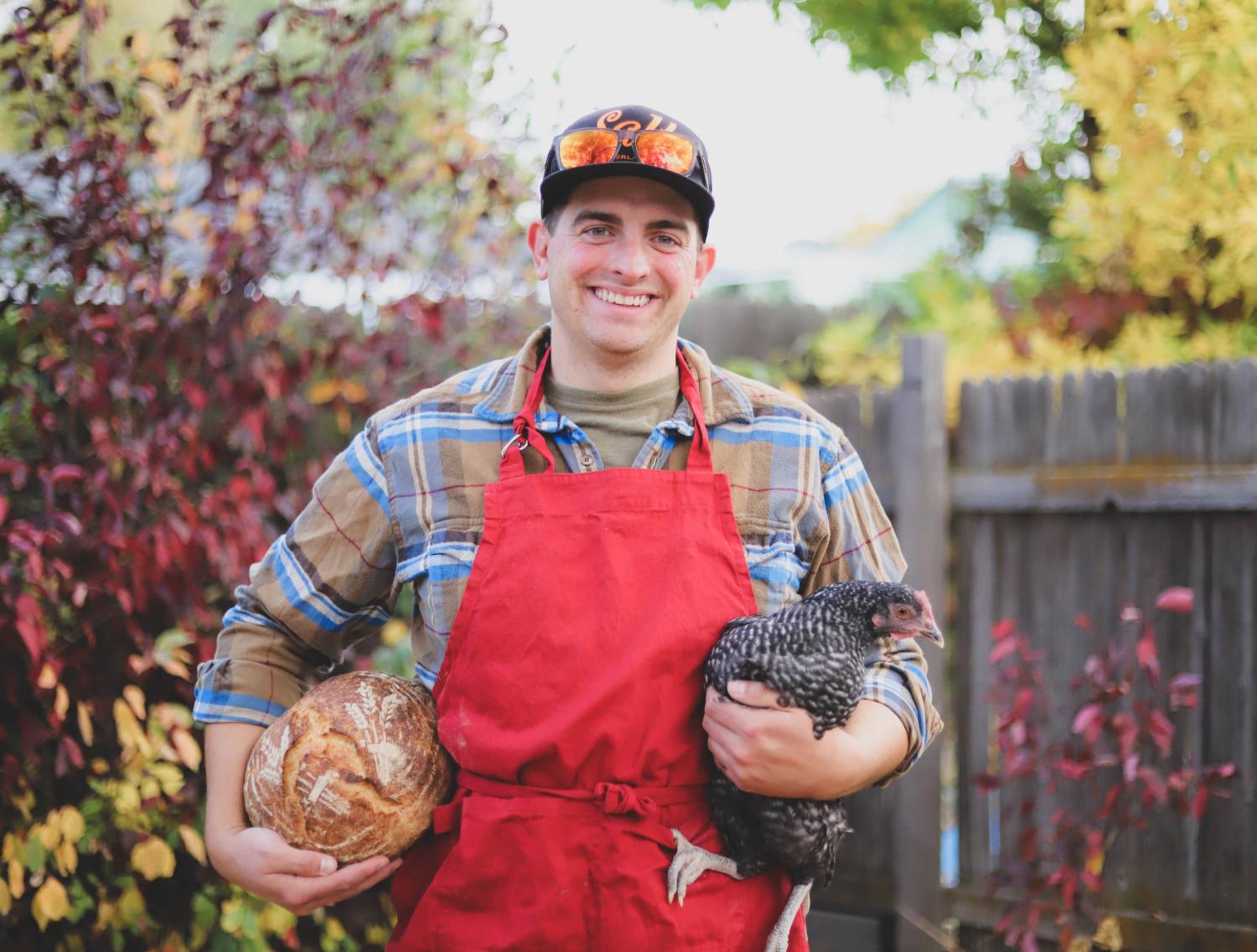
Gregor MacGregor, a CU Boulder assistant teaching professor of environmental studies and a water attorney, began baking bread with his daughters during COVID lockdowns and eventually opened Vulcan Mine Bakery. (Photo: Gregor MacGregor)
“During the COVID lockdown, I was looking for activities to do with my daughters. As my wife characterizes it, we baked a loaf of bread and a dozen donuts, then decided to open a bakery,” he says.
That spontaneous project eventually became Vulcan Mine Bakery. The name, a nod to the former coal mine near his home, reflects MacGregor’s dedication to environmental awareness.
Sustainability you can taste
MacGregor brings his experience as a water attorney and former U.S. Army officer to the bakery in many ways. Having extensively researched circular economies, he built Vulcan Mine Bakery as a truly local operation.
“My milk comes from a dairy in Longmont, I use duck eggs from a farm in Lafayette, I purchase Colorado sugar beet sugar and my grain comes from a farm in Hugo that I mill in house,” he says.
Even the energy source is intentional. Vulcan Mine’s singular oven is powered by rooftop solar panels. MacGregor sees these choices as essential not just for sustainability, but for flavor—and education.
He says, “The public imagination hasn’t quite adopted the fresh food, farm-to-table movement for baked goods yet. That changes when you let someone take in a breath of freshly milled flour.”
Operating under Colorado’s Cottage Foods Act (CFA) helps MacGregor keep his overhead low and his connections local.
“The CFA unlocks opportunities for entrepreneurs to experiment, grow their chops and see if moving on to a food truck or brick-and-mortar store makes sense for them,” he says.
MacGregor adds, “We should explore every avenue to help locals succeed so we all have options to spend and keep money in our communities, with people we care about, and with people who care where our food comes from.”
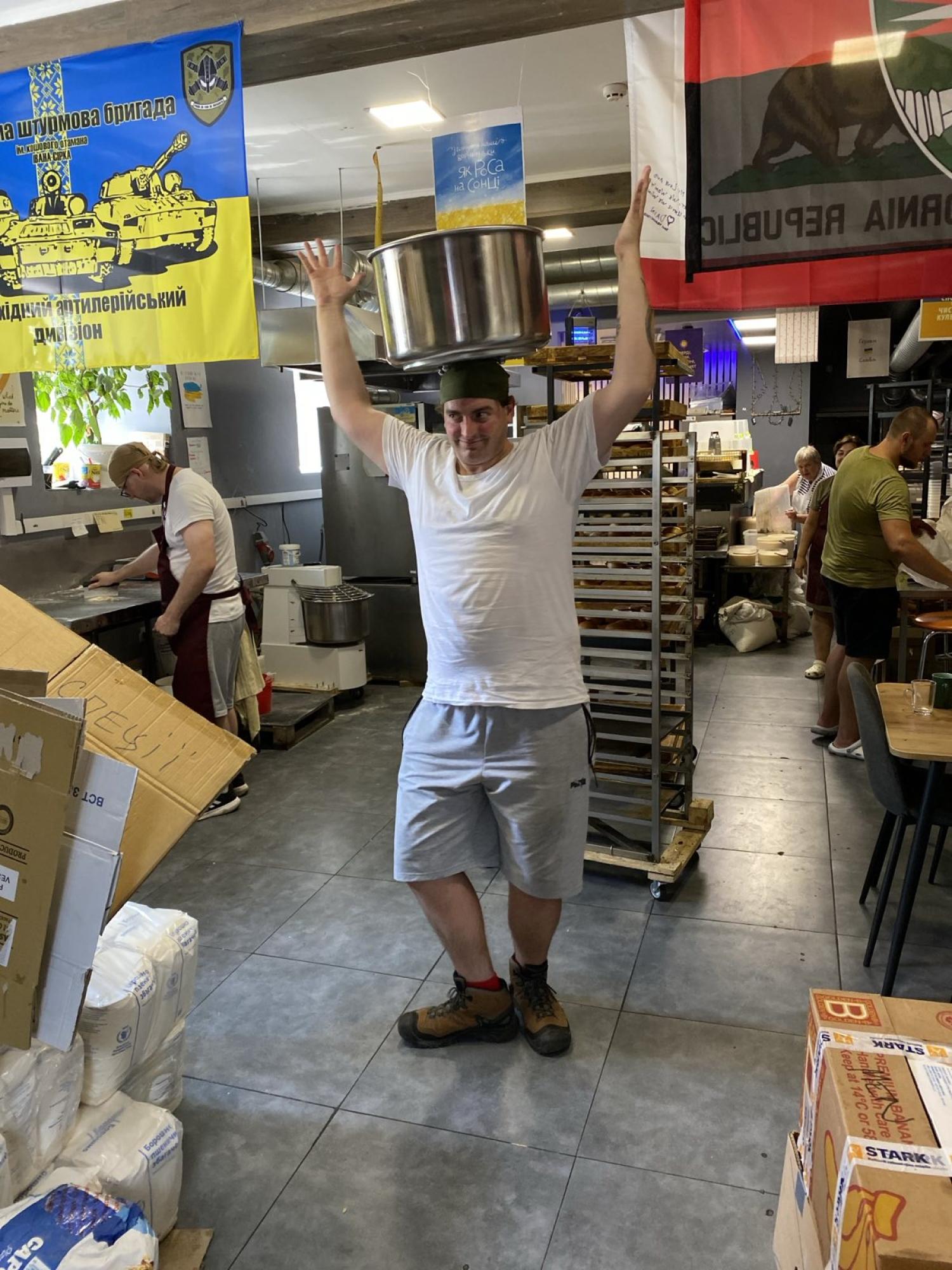
In summer 2025, Gregor MacGregor spent about two weeks in Ukraine baking bread with Kharkiv’s Hell’s Kitchen organization, supplying about 900 meals and 1200 rolls a day to hospitals, refugees and other groups. (Photo: Gregor MacGregor)
Flour and fellowship
For MacGregor, food is also a tool for justice.
“Food justice is absolutely a part of environmental justice—having the basic necessities to survive at the low end and having the opportunity to participate in the system in a culturally and economically significant way at the high end,” he says.
MacGregor embraces the opportunity to live out this philosophy through Vulcan Mine Bakery and regularly donates baked goods to those in need.
In 2021, MacGregor created a special menu of Afghan and American treats for newly arriving families of Afghan refugees.
“I got to visit some of the families with their sponsors to share food and stories. It was an incredible way to meet our new neighbors and help them feel welcome,” he says.
MacGregor’s service work also extends far beyond Colorado’s borders.
“Last summer, I spent about two weeks in Ukraine baking bread with Kharkiv’s ‘Hell’s Kitchen’ organization. We supplied about 900 meals and 1200 rolls a day to hospitals, refugees and other groups. We also drove and delivered food, medicine and clothing out into the countryside to villages in need,” he says.
As someone who has spent years working in environmental law and teaching policy, MacGregor is acutely aware of the systems that shape equity and resilience. Baking has given him a new way to get involved.
“Very few people smile when you show up as an attorney, but almost everyone smiles when you show up as a baker,” he says.
A taste of history
MacGregor’s loaves do more than just nourish. Thanks to his interest in holiday baking, they also spark curiosity and conversations about heritage.
Inspired by an old cookbook titled Celebration Breads, MacGregor often bakes traditional and seasonal recipes that let customers taste the intersection of history, culture and community.
“There’s a recipe for the boozy Hartford Election Cake, which I have not seen baked anywhere else, but which used to be a vital part of early-American democracy,” he explains.
“Like many of our other celebratory breads, it contains a great amount of cultural history within it that relates to the why and when of our consumption.”
Lessons from a loaf
Though Vulcan Mine Bakery is now a part of MacGregor’s daily life, it hasn’t replaced his identity as a champion of the environment. It’s only strengthened his desire to have an impact.
“I love baking because I get to work with my hands, chat with people and see how much they appreciate my bread. I think that last bit, the connection with others and serving them, is what really makes it worthwhile,” he says.
MacGregor sees his bakery as an extension of his environmental teaching, a chance to live out sustainability and connection in a tangible way. He also encourages others to look for similar opportunities in their own lives.
“If you already have a skill, you can probably put it to good use for yourself and others,” he says. “There is great need in the world, but you don’t need great means to have an impact.”
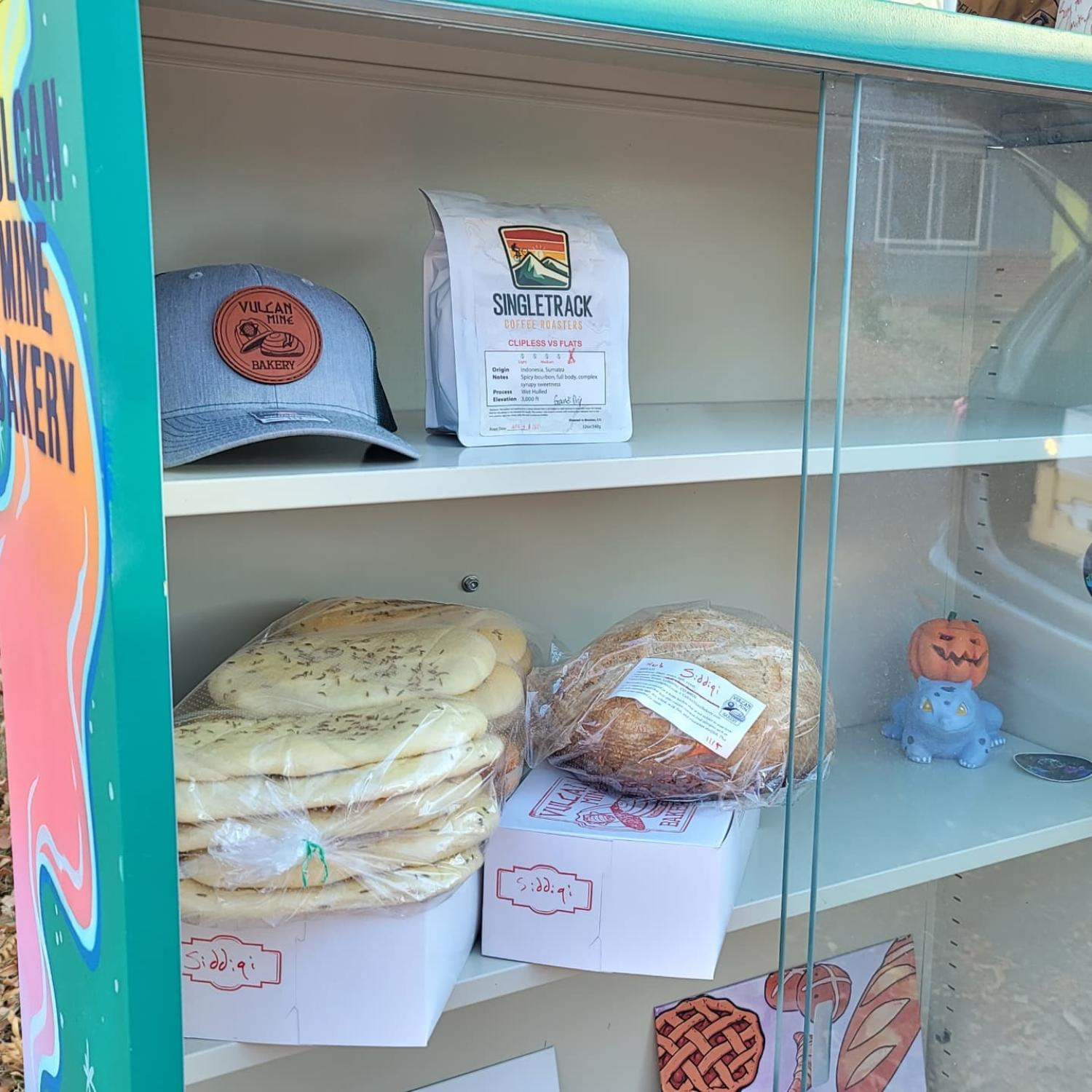
In 2021, Gregor MacGregor created a special menu of Afghan and American treats (shown here) for newly arriving families of Afghan refugees.
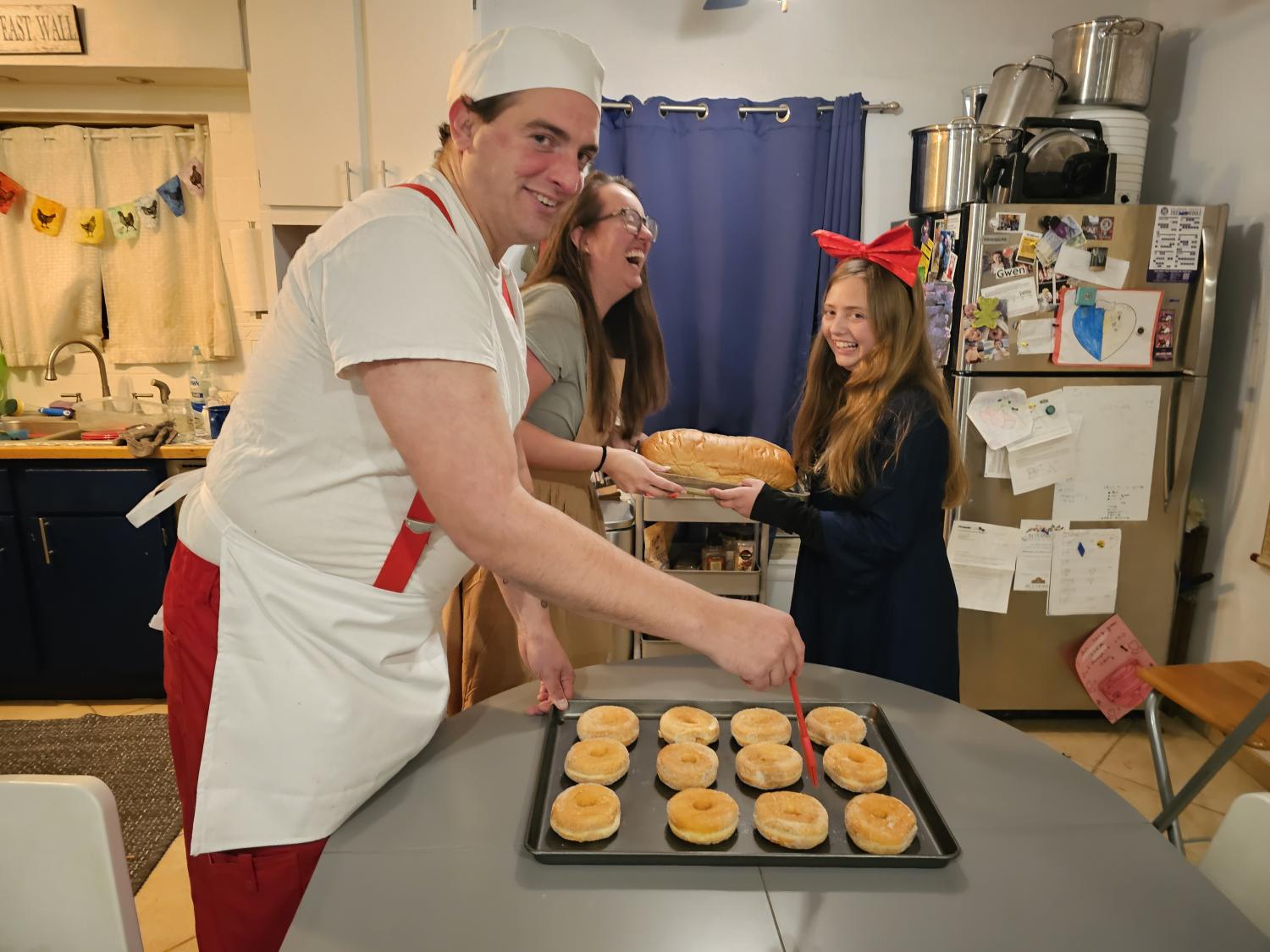
For Gregor MacGregor (left, making donuts with his wife, Kelly, and daughter Madeleine), baking is a family affair. He and his daughters began making bread during COVID lockdowns, which eventually led to opening Vulcan Mine Bakery.
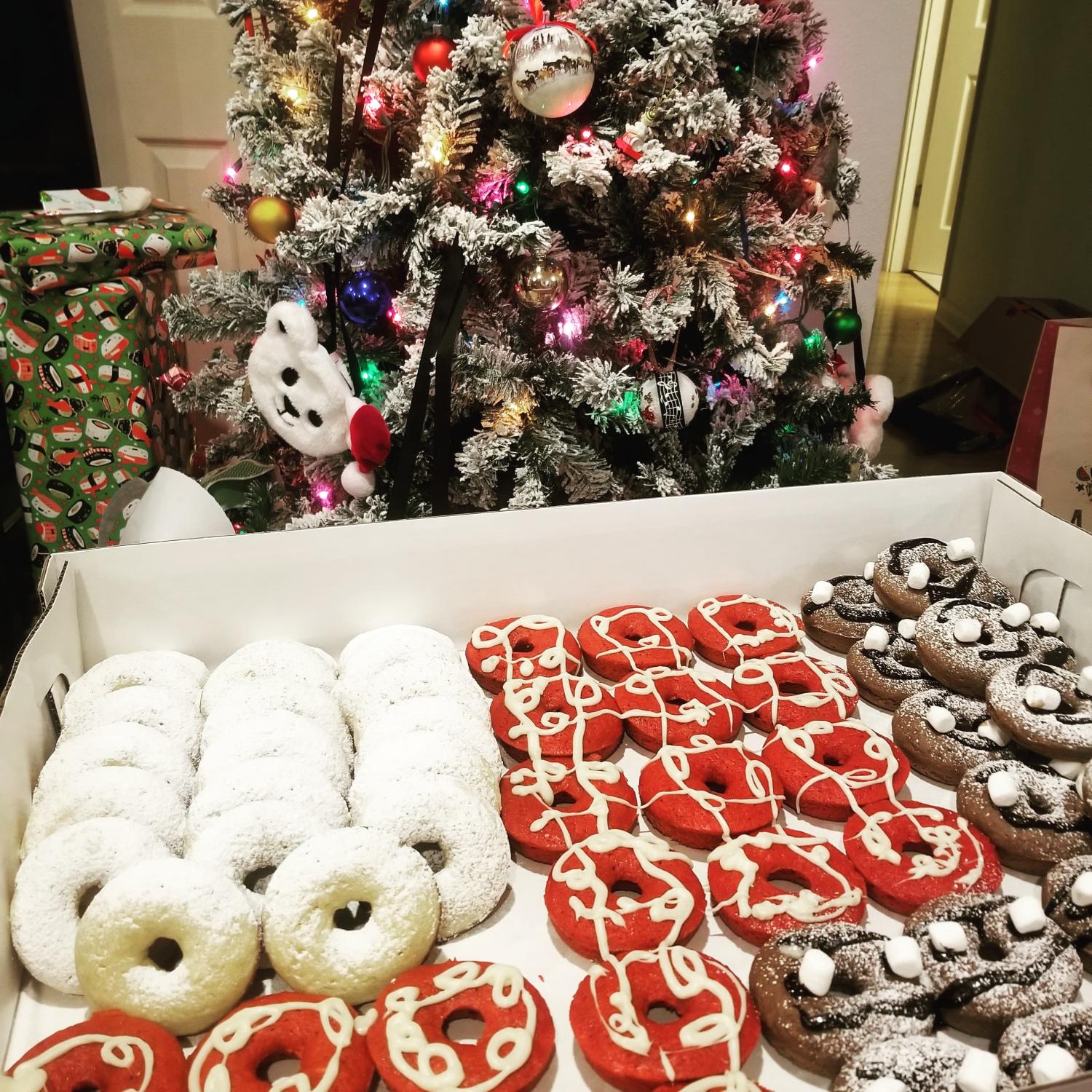
Inspired by an old cookbook titled “Celebration Breads,” Gregor MacGregor often bakes traditional and seasonal recipes that let customers taste the intersection of history, culture and community.
Did you enjoy this article? Subscribe to our newsletter. Passionate about environmental studies? Show your support.

